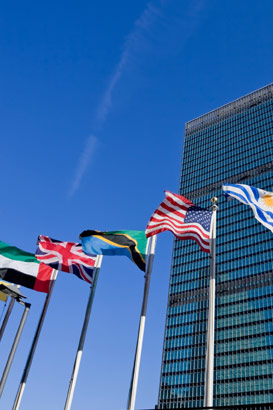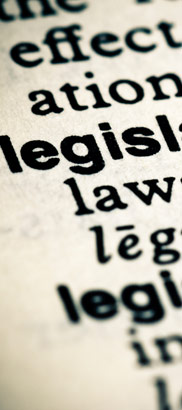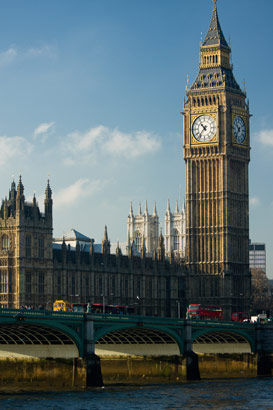
English law does not exist within a vacuum. Wider international laws influence the UK legislative context.
The main sources of international law are:
- The United Nations;
- The Council of Europe; and
- The European Community.
In some cases this legislation is incorporated into UK law directly.
For example, the European Convention on Human Rights 1950 (European Court of Human Rights/Council of Europe, 1950) is now enshrined in UK law through the Human Rights Act 1998. The Children Act 1989 incorporates key principles from the United Nations Convention on the Rights of the Child.

When international law is not explicitly contained within UK statutes, any areas of dispute must be considered in terms of what most closely interprets international treaties:
- European
Convention on Human Rights 1950 (amended)
(particularly Article 8) - United Nations Convention on the Rights of the Child 1989
- United Nations Convention on the Rights of Persons with Disabilities 2006
- The Salamanca Statement 1994
Many rights treaties relating to particular social groups are based upon the principles within the European Convention on Human Rights. The United Nations Convention on the Rights of the Child and the United Nations Convention on the Rights of Persons with Disabilities are two such treatises.

The interpretation of the impact of these treaties upon legal judgements and the responsibilities of individuals and agencies is another key area of case law.
European and international courts also provide a higher level of appeal for individuals who wish to challenge decisions made by UK courts of appeal.
UK law broadly reflects the contents and intentions of these international rulings, though the UK government has determined that UK law may not fully enact some specific issues.
It is important to remember that not all UK countries have the same legislative framework.

Article 23 specifically recognises the right of children with disabilities to: a full and decent life and special care appropriate to their condition and context. It also states that they should receive assistance appropriate to their special needs which is:
'designed to ensure that the disabled child has effective access to and receives education, training, health care services, rehabilitation services, preparation for employment and recreation opportunities in a manner conducive to the child's achieving the fullest possible social integration and individual development, including his or her cultural and spiritual development.'
Supplementary advice - 'The Rights of Children with Disabilities (General Comment No. 9) (United Nations, 2006) – noted ongoing issues for children with disabilities, as a result of barriers: 'not [from] the disability itself but rather a combination of social, cultural, attitudinal and physical obstacles which children with disabilities encounter in their daily lives' (p. 2).
(Kelly et al., 2013)
The European Convention on Human Rights
(applies equally to adults and children)
- Article 6: the right to a fair trial;
- Article 8: the right to respect for private and family life;
- Article 14: the right to freedom from discrimination.
United Nations Convention on the Rights of
the Child
- Article 2: freedom from discrimination;
- Article 3: children’s best interests central to all plans and decisions affecting them;
- Article 6: the right to life, survival and development;
- Article 12: the right to express their views and have them taken seriously;
- Article 23: the right of children with disabilities to a full and decent life and special care appropriate to their condition and context and assistance appropriate to their special needs.
The United Nations Convention on the Rights of Persons with Disabilities
(applies equally to adults and children)
- Article 23: Care of children with disabilities;
- Article 24: Education of children with disabilities.


Other publications
- Department of Chamber and Committee Services (2013) European Union Institutions and Legislation: a short guide. London: House of Commons.
- Kelly, B., Dowling, S. and Winter, K. (2013) A Review of the Legislative
and Policy Context in Relation to Looked After Disabled Children and Young People
in Northern Ireland. Belfast: Queen's University Belfast. [Online at: http://pure.qub.ac.uk/portal/en/publications/a-review-of-the-
legislative-and-policy-context-in-relation-to-looked-after-
disabled-children-and-young-people-in-northern-
ireland(7c651e34-1685-485d-828c-53e0830f3127).html;
accessed: 18.1.14]